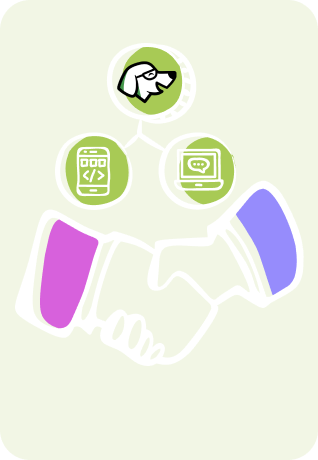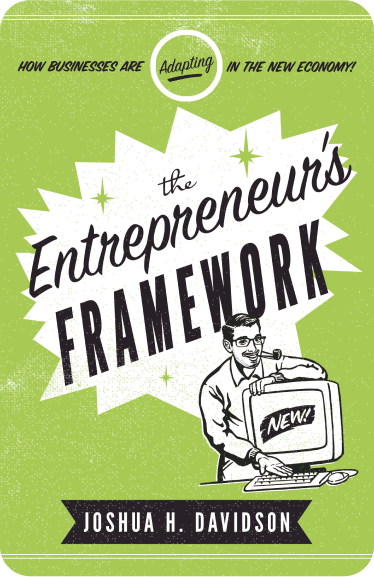There is no denying the hype surrounding the concept of the Metaverse. It has been met with excitement and enthusiasm, but also a lot of skepticism and criticism.
So, what exactly is it, and what does it mean for the future of the internet?
Let’s take a look!
What is the Metaverse?
The metaverse is intended to be more or less a functional combination of virtual reality, augemented reality, and virtual 3D worlds. It is supposed to be a complete immersive virtual world.
Microsoft CEO Satya Nadella told the Financial Times:
Metaverse is essentially about creating games. It is about being able to put people, places, things [in] a physics engine and then having all the people, places, things in the physics engine relate to each other. You and I will be sitting on a conference room table soon with either our avatars or our holograms or even 2D surfaces with surround audio.
A few of the major players in big tech are already involved. Meta, the company previously known as Facebook, even changed its name partially to reflect its commitment ot bringing us the metaverse.
Meta says that within the decade the metaverse will change how we socialize. Microsoft wants to use it to change remote work.
Epic Games wants to create fully immersive fantasy worlds and decentralized tech fans claim it will help to create entire new virtual economies.
What is the Metaverse Like Today?
As of now, we are pretty far off from most of what companies and fanatics have promised or suggested. While some of the basic building blocks are there, a lot remains to be seen.
While VR headsets are more affordable than they have been in the past, this idea is still rather niche and far from mass adoption. However, software companies seem quite confident.
Many have been pouring money into metaverse technologies, like Meta. Last year they opened up Horizon Worlds and Workrooms. This enabled Quest VR headset users to join shared social spaces and work together in virtual meeting rooms.
A Look At Decentraland
As far as the marriage of the metaverse and decentralized technology, a lot of work is already being one.
One strong example is Decentraland, a virtual world built entirely on top of the decentralized Ethereum network. This means that the platform is controlled by users, rather than a single entity or company.
According to Decentraland:
The first fully decentralized world, Decentraland is controlled via the DAO, which owns the most important smart contracts and assets of Decentraland. Via the DAO, you decide and vote on how the world works.
You only need a web browser to access the virtual world where users can attend festivals, play games, and buy and sell virtual plots of land using cryptocurrency. Samsung even has its space in Decentraland, titled 837X, where it has a theater for virtual launch events.
The Controversy Surrounding the Metaverse
So, why is there so much controversy surrounding the metaverse? So far, there is not really one singular goal or definition that everyone can agree on.
Critics say that there are a lot of interesting promises, but so far no real concrete definition of what the technology actually is or does.
Also, while supporters say that it will become an open and universal standard, many think that this is impossible. Simply put, an open internet where users have control is not profitable to tech giants. This is why some feel that the metaverse will more or less function as our current internet and video games do.
Also, while some proponents talk about the possibility of perhaps living in a virtual world full time, others simply cannot see how this would be feasible or even desirable.
When it comes to the metaverse, there are basically three main opinions. One group of people feel that it is the complete future and will revolutionize tech. Another group feels that the metaverse is just a buzzword. The third falls somewhere in the middle.
Some Feel that the Metaverse is Not that New of a Concept
One big point of criticism against the metaverse is that, while it is being touted as a technological revolution, a lot of its components have already existed for decades.
Online virtual worlds and ecosystems, in particular, have existed for nearly two decades in the form of massively multiplayer online games (MMOs)
Some examples of this include games like World of Warcraft and Second Life. Second Life debuted in 2003 and back then users could create avatars, interact with other players in shared social spaces, and use its in-game currency.
However, the metaverse has many potential applications and uses outside of gaming. Focusing on it only as an extension of MMOs is selling it quite short.
Other Problems Surrounding the Metaverse

Logically, it follows that the metaverse would have some of the same problems that many of our other institutions and inventions have. This includes harassment, hate speech, and even sexual harassment.
Some also feel that Mark Zuckerberg is on a “path to owning the entire metaverse.” The Federal Trade Commission recently stepped in and filed an antitrust lawsuit against Meta.
They are looking to stop Meta from acquiring the virtual reality firm Within, which makes a fitness app called Supernatural.
According to the FTC’s complaint:
“Instead of choosing to compete on the merits through its own VR dedicated fitness app, Meta has resorted to proposing this unlawful acquisition.”
Final Thoughts
Ultimately, the Metaverse is an emerging combination of technologies with various applications. While some say it is only a buzzword and others say it will change how we live entirely, the truth is likely somewhere in the middle.
Currently, the largest tech companies on earth are pouring money into developing it, so it will likely be an exciting and interesting area of innovation in the coming years.
What do you think? Comment below.
Since 2009, we have helped create 400+ next-generation apps for startups, Fortune 500s, growing businesses, and non-profits from around the globe. Think Partner, Not Agency.
Find us on social #MakeItAppn®

















